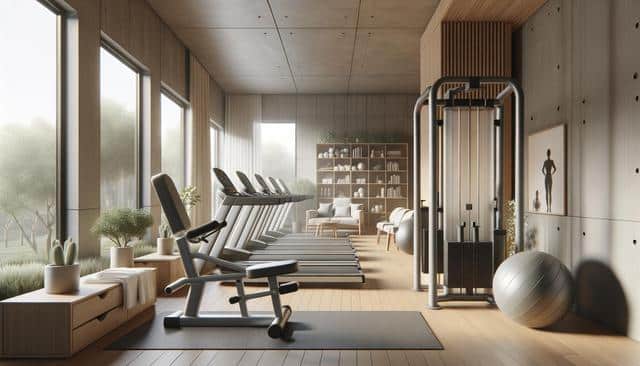Why Senior-Friendly Gyms Matter
As people grow older, maintaining an active lifestyle can significantly enhance quality of life. Physical activity helps manage chronic conditions, boosts mental health, and improves mobility and balance. However, not every gym is equipped or designed to accommodate the specific needs of older adults. Senior-friendly gyms are tailored to provide a safer, more supportive environment where older individuals can exercise comfortably. These facilities often feature low-impact equipment, trained staff familiar with age-related health considerations, and age-appropriate fitness programs.
When looking for a gym for elderly individuals, it’s important to consider whether the facility addresses common concerns such as joint health, cardiovascular endurance, and fall prevention. Many senior-focused gyms offer specialized group classes such as chair yoga, water aerobics, or balance training. These programs not only support physical health but also encourage social interaction, which can help combat feelings of isolation.
How to Start Your Search Locally
Finding a gym for seniors near you starts with identifying local resources and understanding your specific needs. Begin by checking with your local community center, senior center, or health clinic. These places often have partnerships or information about nearby fitness centers that cater to older adults.
Here are some effective ways to start your search:
- Use online maps and search engines with terms like “senior fitness center” or “gym for elderly near me.”
- Ask for recommendations from friends, family, or healthcare providers.
- Check social media community groups dedicated to local health and wellness.
- Visit local gyms and inquire about their senior programs and accessibility features.
In your search, look for gyms that advertise senior discounts or have memberships designed specifically for older adults. These are often indications that the gym has considered the unique needs of elderly clients.
What to Look For in a Senior Gym
Not all gyms are created equal, especially when it comes to the needs of elderly users. When evaluating a facility, safety, accessibility, and program variety are key factors to consider. Equipment should be easy to use, with clear instructions and ergonomic designs. Gyms should also have features like handrails, non-slip flooring, and good lighting throughout the space.
Here are some specific features to look for:
- Certified staff with experience in senior fitness
- Gentle, low-impact workout machines
- Group classes tailored to older adults
- On-site medical support or emergency response readiness
- Flexible memberships with no long-term commitment
Additionally, a clean, friendly environment can make a big difference. Seniors are more likely to stick with a fitness routine when they feel comfortable and welcomed by both staff and fellow members.
Benefits of Staying Active in Later Life
Physical activity is one of the most valuable tools for staying healthy as we age. Regular exercise can help reduce the risk of chronic diseases such as heart disease, diabetes, arthritis, and osteoporosis. It also contributes to better cognitive function, helping to maintain memory and reduce the risk of dementia.
Emotional well-being is another important benefit. Physical activity releases endorphins, which can improve mood and reduce symptoms of depression and anxiety. Group fitness classes also provide a sense of community and structure, both of which are important for mental health. Many seniors report increased confidence, better sleep, and more energy from regular exercise.
Some of the most beneficial exercises for older adults include:
- Walking or light jogging
- Swimming or water aerobics
- Yoga or tai chi
- Strength training with resistance bands or light weights
- Stretching and flexibility routines
These activities can be adapted to fit individual fitness levels and limitations, making them accessible for most seniors.
Making the Right Choice for Your Needs
Choosing the right gym is a personal decision that depends on your health goals, fitness level, and preferences. Before committing to a membership, consider visiting a few different gyms to observe the environment, speak with trainers, and even participate in a trial class. If you’re managing a specific medical condition, consult your doctor before starting a new fitness program. They may recommend particular types of exercise or provide guidelines for safe participation.
Questions to ask during your visit include:
- What qualifications do the trainers have?
- Are there programs specifically for seniors?
- Is the facility easily accessible (e.g., ramps, elevators, handicap parking)?
- What safety protocols are in place?
- Is there a sense of community among members?
Taking the time to find a gym that aligns with your needs can lead to a more enjoyable and sustainable fitness journey. Whether you’re looking to improve balance, gain strength, or simply stay active and social, the right facility can help you achieve your goals safely and comfortably.




Leave a Reply